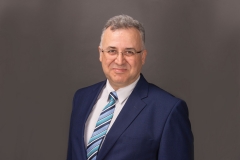
FACULTY OF ARTS AND SCIENCES
Department of Physics
GEEC 203 | Course Introduction and Application Information
| Course Name |
Principles of Economics
|
|
Code
|
Semester
|
Theory
(hour/week) |
Application/Lab
(hour/week) |
Local Credits
|
ECTS
|
|
GEEC 203
|
Fall/Spring
|
3
|
0
|
3
|
6
|
| Prerequisites |
None
|
|||||
| Course Language |
English
|
|||||
| Course Type |
Service Course
|
|||||
| Course Level |
First Cycle
|
|||||
| Mode of Delivery | - | |||||
| Teaching Methods and Techniques of the Course | - | |||||
| Course Coordinator | ||||||
| Course Lecturer(s) | ||||||
| Assistant(s) | ||||||
| Course Objectives | This course provides basic knowledge of micro and macroeconomics. The overall purpose of this course is to introduce the student to the concept of a market economy and to investigate how scarce resources are allocated under a price mechanism.Microeconomics topics such as market economies, demand, supply, consumer theory, the theory of the firm, perfect competition; and basic topics in macroeconomics such as national income, employment, unemployment, inflation and economic growth are analyzed. |
| Learning Outcomes |
The students who succeeded in this course;
|
| Course Description | This course provides an introduction to basic models and concepts in microeconomics and macroeconomics. Basic topics in microeconomics analyzed in this course include an introduction to market economies, supply and demand, consumer theory, the theory of the firm, perfect competition. Basic topics in macroeconomics analyzed in this course include national income, employment, unemployment, inflation, and economic growth. |
|
|
Core Courses | |
| Major Area Courses | ||
| Supportive Courses | ||
| Media and Management Skills Courses | ||
| Transferable Skill Courses |
WEEKLY SUBJECTS AND RELATED PREPARATION STUDIES
| Week | Subjects | Related Preparation |
| 1 | Introduction: What is Economy | - |
| 2 | Capitalist Revolution | The Economy, The Core Project, Unit 1 |
| 3 | Technology and Population | The Economy, The Core Project, Unit 2 |
| 4 | Scarcity, Work and Choice | The Economy, The Core Project, Unit 3 |
| 5 | The Firm: Owners, Managers and Employees | The Economy, The Core Project, Unit 6 |
| 6 | The Firm and Its Customers | The Economy, The Core Project, Unit 7 |
| 7 | Supply and Demand: Price Taking and Competitive Markets | The Economy, The Core Project, Unit 8 |
| 8 | Supply and Demand: Price Taking and Competitive Markets | The Economy, The Core Project, Unit 8 |
| 9 | Midterm | |
| 10 | Economic Fluctuations and Unemployment | The Economy, The Core Project, Unit 13 |
| 11 | Unemployment and Fiscal Policy | The Economy, The Core Project, Unit 14 |
| 12 | Unemployment and Fiscal Policy | The Economy, The Core Project, Unit 14 |
| 13 | Inflation and Monetary Policy | The Economy, The Core Project, Unit 15 |
| 14 | Technological Progress, Unemployment and Living Standards In the Long-Run | The Economy, The Core Project, Unit 16 |
| 15 | Review of the Semester | |
| 16 | Review of the Semester |
| Course Notes/Textbooks | The Economy, Econ Core Project http://www.core-econ.org A free open-source textbook with additional materials. Please get registestered on the book website. |
| Suggested Readings/Materials |
EVALUATION SYSTEM
| Semester Activities | Number | Weigthing |
| Participation |
16
|
10
|
| Laboratory / Application | ||
| Field Work | ||
| Quizzes / Studio Critiques | ||
| Portfolio | ||
| Homework / Assignments |
4
|
20
|
| Presentation / Jury | ||
| Project | ||
| Seminar / Workshop | ||
| Oral Exams | ||
| Midterm |
1
|
30
|
| Final Exam |
1
|
40
|
| Total |
| Weighting of Semester Activities on the Final Grade |
21
|
60
|
| Weighting of End-of-Semester Activities on the Final Grade |
1
|
40
|
| Total |
ECTS / WORKLOAD TABLE
| Semester Activities | Number | Duration (Hours) | Workload |
|---|---|---|---|
| Theoretical Course Hours (Including exam week: 16 x total hours) |
16
|
3
|
48
|
| Laboratory / Application Hours (Including exam week: '.16.' x total hours) |
16
|
0
|
|
| Study Hours Out of Class |
15
|
2
|
30
|
| Field Work |
0
|
||
| Quizzes / Studio Critiques |
0
|
||
| Portfolio |
0
|
||
| Homework / Assignments |
4
|
12
|
48
|
| Presentation / Jury |
0
|
||
| Project |
0
|
||
| Seminar / Workshop |
0
|
||
| Oral Exam |
0
|
||
| Midterms |
1
|
12
|
12
|
| Final Exam |
1
|
30
|
30
|
| Total |
168
|
COURSE LEARNING OUTCOMES AND PROGRAM QUALIFICATIONS RELATIONSHIP
|
#
|
Program Competencies/Outcomes |
* Contribution Level
|
||||
|
1
|
2
|
3
|
4
|
5
|
||
| 1 | To be able master and use fundamental phenomenological and applied physical laws and applications, |
|||||
| 2 | To be able to identify the problems, analyze them and produce solutions based on scientific method, |
|||||
| 3 | To be able to collect necessary knowledge, able to model and self-improve in almost any area where physics is applicable and able to criticize and reestablish his/her developed models and solutions, |
|||||
| 4 | To be able to communicate his/her theoretical and technical knowledge both in detail to the experts and in a simple and understandable manner to the non-experts comfortably, |
|||||
| 5 | To be familiar with software used in area of physics extensively and able to actively use at least one of the advanced level programs in European Computer Usage License, |
|||||
| 6 | To be able to develop and apply projects in accordance with sensitivities of society and behave according to societies, scientific and ethical values in every stage of the project that he/she is part in, |
|||||
| 7 | To be able to evaluate every all stages effectively bestowed with universal knowledge and consciousness and has the necessary consciousness in the subject of quality governance, |
|||||
| 8 | To be able to master abstract ideas, to be able to connect with concreate events and carry out solutions, devising experiments and collecting data, to be able to analyze and comment the results, |
|||||
| 9 | To be able to refresh his/her gained knowledge and capabilities lifelong, have the consciousness to learn in his/her whole life, |
|||||
| 10 | To be able to conduct a study both solo and in a group, to be effective actively in every all stages of independent study, join in decision making stage, able to plan and conduct using time effectively. |
|||||
| 11 | To be able to collect data in the areas of Physics and communicate with colleagues in a foreign language ("European Language Portfolio Global Scale", Level B1). |
|||||
| 12 | To be able to speak a second foreign at a medium level of fluency efficiently |
|||||
| 13 | To be able to relate the knowledge accumulated throughout the human history to their field of expertise. |
|||||
*1 Lowest, 2 Low, 3 Average, 4 High, 5 Highest
NEWS |ALL NEWS
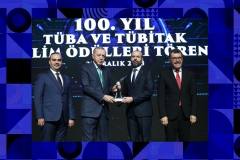
Four major awards in 5 years
Prof. Dr. Göktuğ Karpat, Faculty Member at Department of Physics, Faculty of Arts and Science, Izmir University of Economics (IUE) has been

The Physics Department Erasmus Agreement
Dear Students of the Physics Department at Izmir University of Economics, We are pleased to share with you an exciting announcement! Our university

Loved physics, gave up her childhood dream
Senem Özdemir, who has been dreaming of becoming a pilot since childhood, graduated as the top student in the Department of Physics
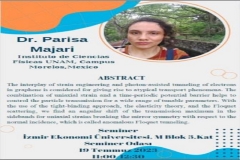
Scientific visit to the Department of Physics
Dr. Parisa Majari came to visit our Physics Department. Dr. Majari who studied with Prof. Dr. Gürsoy Bozkurt Akgüç gave a seminar
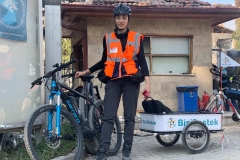
Ambassador of 'goodness'
Berfin Kolcu, a student of Izmir University of Economics (IUE) Department of Physics, went to Hatay, where thousands of people were under
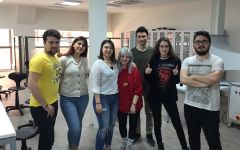
our student physics project at the finals
NEBULA rocket team, a branch of physics club established by our students is now at the finals after succesfully passing critical design


